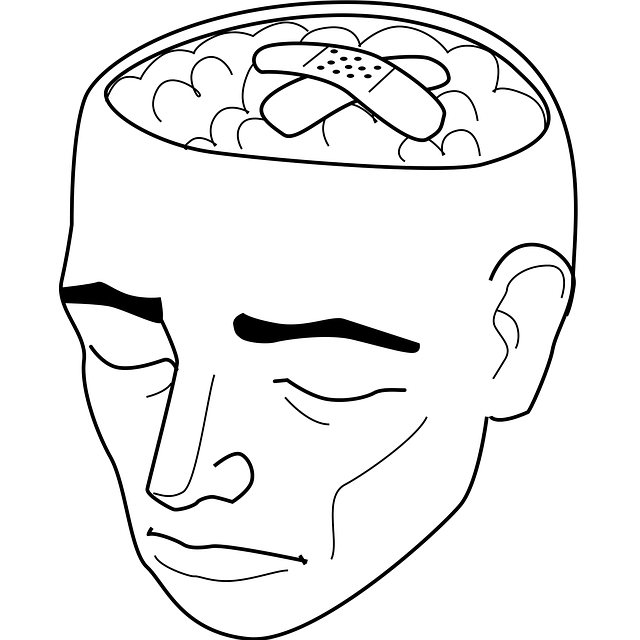Lafayette Major Life Transitions Therapy offers crisis intervention and specialized support for significant life changes, using evidence-based techniques like Mind Over Matter and compassion cultivation. Their approach addresses acute crises while fostering long-term resilience, reducing mental illness stigma, and providing post-intervention care through tailored guidance and cultural competency training. Through active listening, mindfulness exercises, and comprehensive resources, they create a safe space for individuals to navigate distressing situations, promoting emotional well-being and recovery.
In times of crisis, effective support can make all the difference. This article provides a comprehensive guide on crisis intervention strategies, focusing on Lafayette Major Life Transitions Therapy as a powerful tool for navigating challenging situations. We explore how understanding crisis dynamics and individual needs is key to successful intervention. From identifying critical points to implementing practical stabilization techniques, this resource equips readers with essential skills. Additionally, we delve into post-intervention care and fostering resilience, emphasizing the long-term benefits of Lafayette Major Life Transitions Therapy.
- Understanding Crisis Intervention: A Foundation for Effective Support
- Lafayette Major Life Transitions Therapy: An Overview
- Identifying Crisis Points and Individual Needs
- Practical Strategies for Intervention and Stabilization
- Post-Intervention Care and Fostering Resilience
Understanding Crisis Intervention: A Foundation for Effective Support

Understanding Crisis intervention is a cornerstone for any support system, especially in the context of Lafayette Major Life Transitions Therapy. It involves providing immediate and targeted assistance to individuals facing severe distress or significant life changes. By recognizing the unique challenges that accompany these transitions, therapists can offer tailored guidance and strategies. This approach not only helps manage acute situations but also equips clients with tools for long-term resilience.
Crisis intervention leverages evidence-based techniques like Mind Over Matter principles to empower individuals in managing their mental health. Simultaneously, it addresses the underlying issues, fosters coping mechanisms, and mitigates risks associated with severe mental illness. Effective crisis support also involves destigmatizing mental health concerns, a crucial aspect of Mental Illness Stigma Reduction Efforts. Additionally, Risk Management Planning for Mental Health Professionals plays a vital role in ensuring therapists are prepared to handle crises ethically and competently.
Lafayette Major Life Transitions Therapy: An Overview

Lafayette Major Life Transitions Therapy offers a specialized approach to helping individuals navigate through significant life changes. This therapy is designed to support folks dealing with major life transitions, such as career shifts, retirement, empty nest syndrome, or even personal losses. By focusing on these specific challenges, the program aims to foster resilience and promote healthy coping mechanisms.
The therapy incorporates various evidence-based techniques, including compassion cultivation practices to enhance self-kindness and empathy, social skills training for building supportive networks, and stress reduction methods to manage anxiety and depression often associated with major life changes. Through a compassionate and non-judgmental environment, clients are empowered to explore their emotions, gain new perspectives, and develop adaptive strategies to thrive during and after these transformative periods.
Identifying Crisis Points and Individual Needs

Identifying crisis points is a critical first step in effective crisis intervention. This involves recognizing signs of distress or potential danger that signal an individual’s need for support. In Lafayette, Major Life Transitions Therapy offers valuable insights into these indicators, which can range from sudden changes in behavior to overt expressions of despair. Therapists play a vital role in assessing these points, understanding the unique needs of each person, and tailoring interventions accordingly. By examining personal history, current circumstances, and emotional responses, professionals can pinpoint specific triggers and develop targeted strategies.
Tailoring support to individual needs is essential for successful crisis intervention. This includes addressing not only the immediate crisis but also underlying factors contributing to distress. For instance, Trauma Support Services might focus on helping individuals process past traumas while Mental Health Policy Analysis and Advocacy works to ensure access to necessary resources and services. Incorporating Mind Over Matter Principles can empower individuals to reframe challenging situations, fostering resilience and coping mechanisms that promote long-term mental health and well-being.
Practical Strategies for Intervention and Stabilization

In crisis intervention, immediate practical strategies are crucial for stabilizing individuals and guiding them toward recovery. One effective approach is to create a safe and supportive environment where individuals feel heard and understood. This can be achieved through active listening, empathy, and ensuring confidentiality, fostering trust and encouraging open communication. Lafayette Major Life Transitions Therapy often employs techniques such as mindfulness exercises and grounding strategies to help clients manage intense emotions and gain perspective. These methods promote self-regulation, enabling individuals to navigate challenging situations with increased resilience.
Additionally, integrating Stress Reduction Methods and Positive Thinking into the intervention process can be transformative. Encouraging clients to practice relaxation techniques, engage in regular physical activity, or explore hobbies can help alleviate stress and improve overall mental wellness. The Mental Wellness Podcast Series Production can also play a vital role by providing accessible resources and sharing successful strategies, further enhancing the therapeutic journey.
Post-Intervention Care and Fostering Resilience

Post-intervention care is a vital step in crisis intervention, ensuring individuals receive ongoing support and guidance to navigate their journey towards resilience. Following an intense or traumatic event, clients often need assistance in managing their emotions and adjusting to any changes brought about by the crisis. Lafayette Major Life Transitions Therapy offers specialized services to bridge this critical period. Therapists play a crucial role in fostering a safe and non-judgmental space, allowing individuals to express their feelings freely.
By incorporating empathy building strategies, healthcare providers can enhance client-therapist relationships, encouraging open communication. This connection enables therapists to provide tailored guidance on emotional regulation techniques, which are essential tools for managing stress and anxiety. Additionally, cultural competency training ensures that therapists are equipped to address diverse needs, fostering a sense of understanding and acceptance during this transformative period.
Crisis intervention is a multifaceted field that requires a deep understanding of human psychology and adaptive strategies. By integrating knowledge from various sectors, such as Lafayette Major Life Transitions Therapy, professionals can effectively guide individuals through their crises. From recognizing critical points to post-intervention care, the techniques outlined in this article provide a robust framework for offering support. These strategies not only stabilize individuals but also foster resilience, enabling them to navigate life’s challenges with enhanced coping mechanisms.














